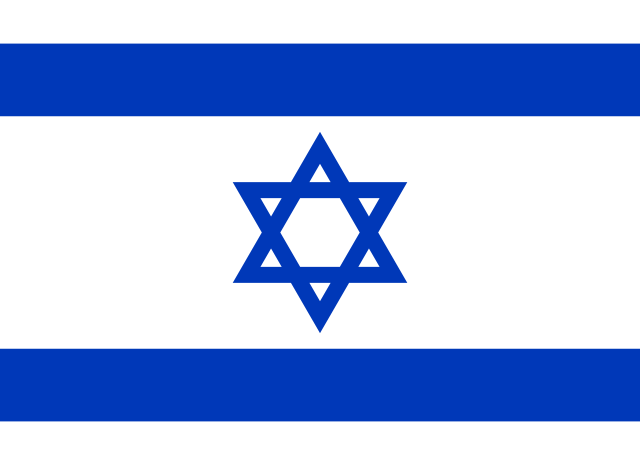Content deleted Content added
Tag: Reverted |
m Tag: Reverted |
||
Line 170: In the late 18th century, local Arab [[Sheikh]] [[Zahir al-Umar]] created a de facto independent Emirate in the Galilee. Ottoman attempts to subdue the Sheikh failed. After Zahir's death the Ottomans regained control of the area. In 1799, governor [[Jazzar Pasha]] repelled an [[Siege of Acre (1799)|assault on Acre]] by [[Napoleon]]'s troops, prompting the French to abandon the Syrian campaign.<ref>{{cite web |title=Palestine – Ottoman rule |url=https://www.britannica.com/place/Palestine#ref45065 |url-status=live |archive-url=https://web.archive.org/web/20211204202215/https://www.britannica.com/place/Palestine#ref45065 |archive-date=4 December 2021 |access-date=27 November 2018 |website=Encyclopedia Britannica}}</ref> In 1834, a [[Peasants' revolt in Palestine|revolt by Palestinian Arab peasants]] against Egyptian conscription and taxation policies under [[Muhammad Ali of Egypt|Muhammad Ali]] was suppressed; Muhammad Ali's army retreated and Ottoman rule was restored with British support in 1840.<ref>{{cite journal |last1=Macalister |first1=R. A. Stewart |last2=Masterman |first2=E. W. G. |year=1906 |title=The Modern Inhabitants of Palestine |url=https://archive.org/stream/quarterlystateme38pale#page |journal=Quarterly Statement – Palestine Exploration Fund |page=[https://archive.org/stream/quarterlystateme38pale#page/40/mode/1up 40]}}</ref> The [[Tanzimat]] reforms were implemented across the Ottoman Empire. The first wave of modern Jewish migration to [[Southern Syria|Ottoman-ruled Palestine]], known as the [[First Aliyah]], began in 1881, as Jews fled [[pogrom]]s in Eastern Europe.<ref>{{Cite book|last=Halpern|first=Ben|title=Zionism and the creation of a new society |url=https://archive.org/details/zionismcreationn00halp|url-access=limited|publisher=Oxford University Press|others=Reinharz, Jehuda |year=1998|isbn=978-0-585-18273-5|pages=[https://archive.org/details/zionismcreationn00halp/page/n61 53]–54|oclc=44960036}}</ref> The 1882 [[May Laws]] increased economic discrimination against Jews, and restricted where they could live.<ref>{{Cite journal |last=Mandel |first=Neville J. |date=1974 |title=Ottoman Policy and Restrictions on Jewish Settlement in Palestine: 1881–1908: Part I |journal=Middle Eastern Studies |volume=10 |issue=3 |url=https://ismi.emory.edu/documents/Readings/Mandel,%20Neville%20J.%20Ottoman%20Policy.pdf |pages=312–332 |doi=10.1080/00263207408700278 |issn=0026-3206 |access-date=1 December 2023 |archive-date=3 December 2023 |archive-url=https://web.archive.org/web/20231203103201/https://ismi.emory.edu/documents/Readings/Mandel,%20Neville%20J.%20Ottoman%20Policy.pdf |url-status=live }}</ref><ref>{{Cite book|last=Levine|first=Aaron|date=2014|title=Russian Jews and the 1917 Revolution|url=https://psource.sitehost.iu.edu/PDF/Archive%20Articles/Spring2014/2014%20-%20Spring%20-%203%20-%20Levine%20Aaron.pdf|page=14|access-date=7 December 2023|archive-date=8 March 2023|archive-url=https://web.archive.org/web/20230308091831/https://psource.sitehost.iu.edu/PDF/Archive%20Articles/Spring2014/2014%20-%20Spring%20-%203%20-%20Levine%20Aaron.pdf|url-status=live}}</ref> In response, political [[Zionism]] took form, a movement that sought to establish a [[Jewish state]] in Palestine, thus offering a solution to the [[Jewish question]] of the European states.{{sfn|Herzl|1946|p=11}}{{better source needed|date=September 2024}} The [[Second Aliyah]] (1904–1914) began after the [[Kishinev pogrom]]; some 40,000 Jews settled in Palestine, although nearly half left eventually. Both the first and second waves of migrants were mainly [[Orthodox Jews]].<ref>{{harvnb|Stein|2003|p=88}}. "As with the First Aliyah, most Second Aliyah migrants were non-Zionist orthodox Jews ..."</ref> The Second Aliyah included [[Labor Zionism|Zionist socialist]] groups who established the ''[[kibbutz]]'' movement based on the idea of establishing a separate Jewish economy based exclusively on Jewish labor.<ref>{{cite book |last1=Moris |first1=Beni |title=Righteous victims: a history of the Zionist-Arab conflict, 1881 – 2001 |date=2001 |publisher=Vintage Books |location=New York, NY |isbn=9780679744757 |edition=1. Vintage Books |quote=Many of these newcomers possessed a mixture of socialist and nationalist values, and they eventually succeeded in setting up a separate Jewish economy, based wholly on Jewish labor.}}</ref>{{sfn|Romano|2003|p=30}} Those of the Second Aliyah who became leaders of the [[Yishuv]] in the coming decades believed that the Jewish settler economy should not depend on Arab labor. This would be a dominant source of antagonism with the Arab population, with the new Yishuv's nationalist ideology overpowering its socialist one.<ref>{{cite book |last1=Moris |first1=Beni |title=Righteous victims: a history of the Zionist-Arab conflict, 1881 – 2001 |date=2001 |publisher=Vintage Books |location=New York, NY |isbn=9780679744757 |edition=1. Vintage Books |quote=Another major cause of antagonism was the labor controversy. The hard core of Second Aliyah socialists, who were to become the Yishuv's leaders in the 1920s and 1930s, believed that the settler economy must not depend on or exploit Arab labor... But, in reality, rather than “meshing,” the nationalist ethos had simply overpowered and driven out the socialist ethos... There were other reasons for the “conquest of labor.” The socialists of the Second Aliyah used the term to denote three things: overcoming the Jews' traditional remove from agricultural labor and helping them transform into the “new Jews”; struggling against employers for better conditions; and replacing Arabs with Jews in manual jobs.}}</ref> Though the immigrants of the Second Aliyah largely sought to create communal Jewish agricultural settlements, [[Tel Aviv]] was established as the first planned Jewish town in 1909. Jewish armed militias emerged during this period, the first being [[Bar-Giora (organization)|Bar-Giora]] in 1907. Two years later, the larger [[Hashomer]] organization was founded as its replacement. | |||
 Article Images
Article Images